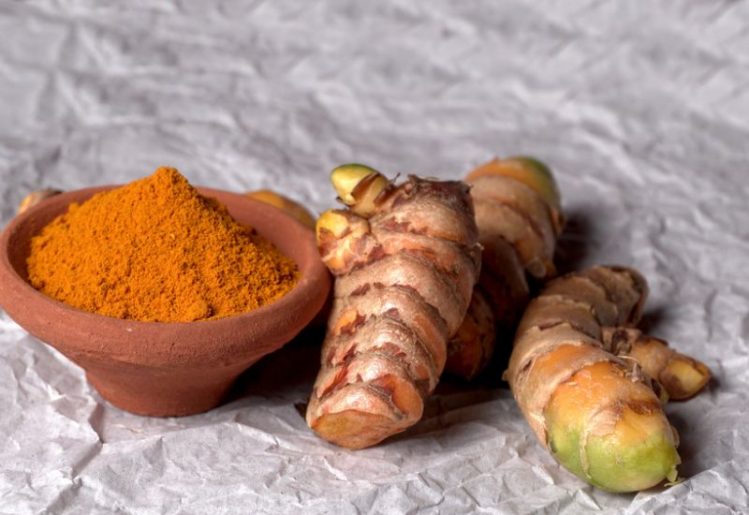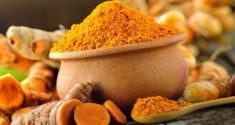Experts Weigh in on the Best Time of Day to Eat Spices
Is there a best time of day to eat spices? Emerging research suggests that this is the case. Before you reach for that jalapeño popper dip or bowl of chicken curry, you may want to think about timing the meal for maximum benefits. The science of chronobiology is helping scientists to discern when the best time of day is to eat spices.
Here is what you need to know about how the body's inherent daily rhythms can influence how well you are able to digest and tolerate spicy food.
Exploring the Concept of Chronobiology
 In its simplest terms, chronobiology is the study of biological rhythms. The science of chronobiology leans on the power of the body's natural 24-hour circadian rhythm to suggest that there is an ideal of time for every physiological function. These predetermined cycles influence sleeping patterns, metabolism and more. The specific time of day dictates these patterns.
In its simplest terms, chronobiology is the study of biological rhythms. The science of chronobiology leans on the power of the body's natural 24-hour circadian rhythm to suggest that there is an ideal of time for every physiological function. These predetermined cycles influence sleeping patterns, metabolism and more. The specific time of day dictates these patterns.
Scientists have found that timing when you eat impacts the number of calories that you burn. For example, more calories tend to be burned when you eat earlier in the day because of the process of thermogenesis, or the amount of energy the body needs to digest and process food. Based on the findings of chronobiology, if you want to enjoy a greater caloric burn, you would be wise to generally consume the bulk of your calories earlier in the day.
Best Time of Day to Eat Spices
One of the most interesting bodies of research to come out of the study of chronobiology is that there is an ideal time of the day to eat spices. For some people, indulging in that spicy Mexican meal or flavorful Indian cuisine can leave them feeling bloated or dealing with burning heartburn. However, what if you can avoid these feelings of discomfort by enjoying these foods at a different time of the day?
New research is demonstrating that many people will suffer fewer side effects if they consume spicy food earlier in the day. In addition, the research indicates that you will enjoy maximum absorption of the many nutrients provided by spices if you consume them earlier rather than later. This is because the body will have more time to absorb the nutrients as dictated by the concept of chronobiology.
Health Benefits of Spices
So why does all of this matter? A growing body of research points to the many health benefits of spices. Here are just a few of the most beneficial spices and why you will want to maximize these health advantages by timing your consumption for ideal absorption.
Ginger
The use of ginger to treat nausea goes back to ancient Asia. Ginger has been shown to be effective at treating nausea related to pregnancy, surgery recovery, motion sickness, chemotherapy and more. This tropical plant comes in a myriad of forms, including capsules, teas, lollipops and dried powder. You can also buy fresh ginger root and grate it into your favorite recipes for any extra flavor punch.
Garlic
Garlic not only tastes delicious, but it can also protect the heart. Research has correlated garlic intake with lower cholesterol and triglyceride levels. Garlic also supports flexible blood vessels, allowing better blood flow and less narrowing of the arteries. All of these benefits will help to lower the risk of developing heart disease while also reducing the chances of heart attacks and strokes.
Cinnamon
Cinnamon is a spice that may lower blood sugar levels in those dealing with Type 2 diabetes. In addition, the sweet spice may also support a healthy heart by lowering high blood cholesterol and triglyceride levels, as well as supporting healthy blood pressure already within normal ranges. Try sprinkling cinnamon on your yogurt or oatmeal or using it as a flavorful meat rub.
Turmeric
 Turmeric is a popular ingredient in many Indian dishes. Not only does it add the distinctive flavor for this cuisine, but it may also reduce inflammation levels in the body. The reduction in inflammation provides numerous health benefits, notably a reduction in the pain and swelling associated with arthritis.
Turmeric is a popular ingredient in many Indian dishes. Not only does it add the distinctive flavor for this cuisine, but it may also reduce inflammation levels in the body. The reduction in inflammation provides numerous health benefits, notably a reduction in the pain and swelling associated with arthritis.
The turmeric component known as curcumin has also been correlated to an improvement in cognitive function and memory. In addition to including it in curry dishes, you can try using turmeric as a rub for a variety of meats and vegetables. If you find it hard to get enough turmeric in your diet, there are also targeted supplements that provide ample amounts of turmeric and its active compound, curcumin.
Cayenne
Cayenne is no stranger to a bevy of cuisines, including Creole, Mexican and Cajun. The substance capsaicin is what gives cayenne its distinctive kick. Capsaicin can also deliver pain relief by lowering the pain signals that are sent to the brain for processing. This makes it a good spice to use for nerve damage caused by diabetes or general arthritic pain. Studies have also linked cayenne pepper with a reduction in stomach ulcers.
It is important to note that every individual reacts differently to spicy food. What may work for one person may not work for another. The goal is to find the time of the day that you can best tolerate these spices and harness their numerous health benefits.




